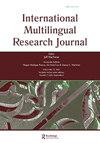Moving away from the 4-hour block: Arizona’s distinctive path to reversing its restrictive language policies
IF 2.1
1区 文学
Q2 EDUCATION & EDUCATIONAL RESEARCH
引用次数: 4
Abstract
ABSTRACT In spring 2019, without controversy or fanfare and without violating the voter mandate of Proposition 203, emergent bilinguals in Arizona were once again granted unrestricted access to dual language bilingual education after nearly 20 years. The policy change was accomplished through a seemingly small piece of legislation that reduced the daily Structured English Immersion requirement from four hours to two hours. In this study, we analyze the Senate and House education committee hearings in which this legislation was unanimously approved before being signed into law by the governor. Using critical discourse analysis and through a theoretical lens of interest convergence, we examine the strategic moves utilized by speakers and legislators to build consensus for this remarkable, yet overlooked, legislation. We found that, in contrast to policy reforms in California and Massachusetts, which used a “multilingualism-for-all” strategy, the speakers and legislators in Arizona focused on English learners. Yet, they worked to show that a change benefitting English learners would also benefit parents, schools, teachers, districts, and even the state of Arizona. Our findings suggest that advocacy for bilingual education that is informed by contextual awareness and translated into the local discourse can produce success, even in conservative contexts such as Arizona.摆脱4小时封锁:亚利桑那州扭转限制性语言政策的独特途径
2019年春天,在没有争议或大张大擂的情况下,在没有违反第203号提案的情况下,亚利桑那州的新兴双语者在近20年后再次获得了不受限制的双语教育。这一政策变化是通过一项看似很小的立法来实现的,该立法将每天的结构化英语浸入要求从4小时减少到2小时。在本研究中,我们分析了参议院和众议院教育委员会的听证会,该立法在州长签署成为法律之前得到了一致通过。通过批判性话语分析和利益趋同的理论视角,我们研究了演讲者和立法者为这一非凡但被忽视的立法建立共识所采用的战略举措。我们发现,加州和马萨诸塞州的政策改革采用了“人人使用多种语言”的策略,而亚利桑那州的演讲者和立法者则把重点放在了英语学习者身上。然而,他们努力表明,有利于英语学习者的变化也有利于家长、学校、教师、学区,甚至亚利桑那州。我们的研究结果表明,即使在像亚利桑那州这样的保守环境中,倡导基于语境意识的双语教育并将其转化为当地话语也能取得成功。
本文章由计算机程序翻译,如有差异,请以英文原文为准。
求助全文
约1分钟内获得全文
求助全文
来源期刊
CiteScore
4.10
自引率
4.80%
发文量
19
期刊介绍:
The International Multilingual Research Journal (IMRJ) invites scholarly contributions with strong interdisciplinary perspectives to understand and promote bi/multilingualism, bi/multi-literacy, and linguistic democracy. The journal’s focus is on these topics as related to languages other than English as well as dialectal variations of English. It has three thematic emphases: the intersection of language and culture, the dialectics of the local and global, and comparative models within and across contexts. IMRJ is committed to promoting equity, access, and social justice in education, and to offering accessible research and policy analyses to better inform scholars, educators, students, and policy makers. IMRJ is particularly interested in scholarship grounded in interdisciplinary frameworks that offer insights from linguistics, applied linguistics, education, globalization and immigration studies, cultural psychology, linguistic and psychological anthropology, sociolinguistics, literacy studies, post-colonial studies, critical race theory, and critical theory and pedagogy. It seeks theoretical and empirical scholarship with implications for research, policy, and practice. Submissions of research articles based on quantitative, qualitative, and mixed methods are encouraged. The journal includes book reviews and two occasional sections: Perspectives and Research Notes. Perspectives allows for informed debate and exchanges on current issues and hot topics related to bi/multilingualism, bi/multi-literacy, and linguistic democracy from research, practice, and policy perspectives. Research Notes are shorter submissions that provide updates on major research projects and trends in the field.

 求助内容:
求助内容: 应助结果提醒方式:
应助结果提醒方式:


